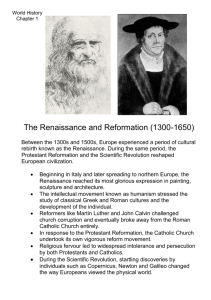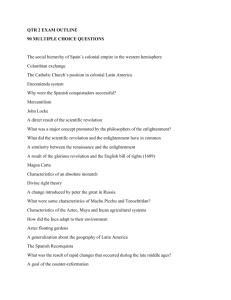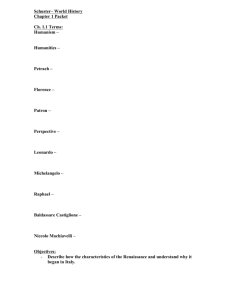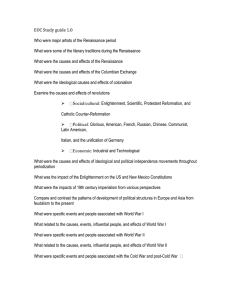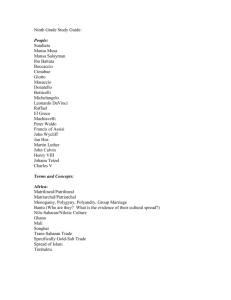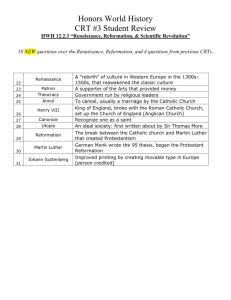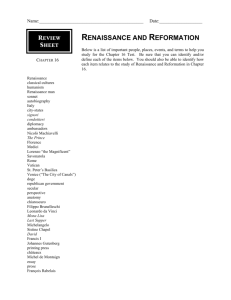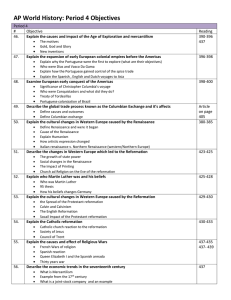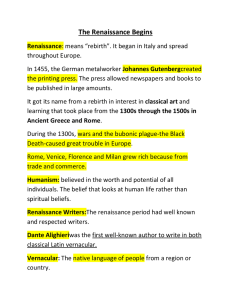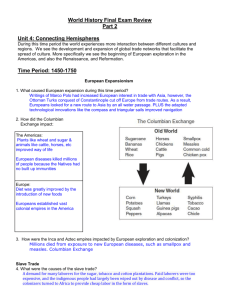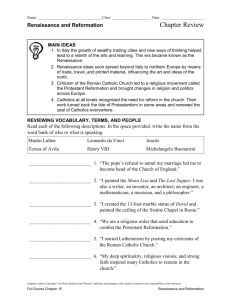Chapter 17 The Transformation of the West
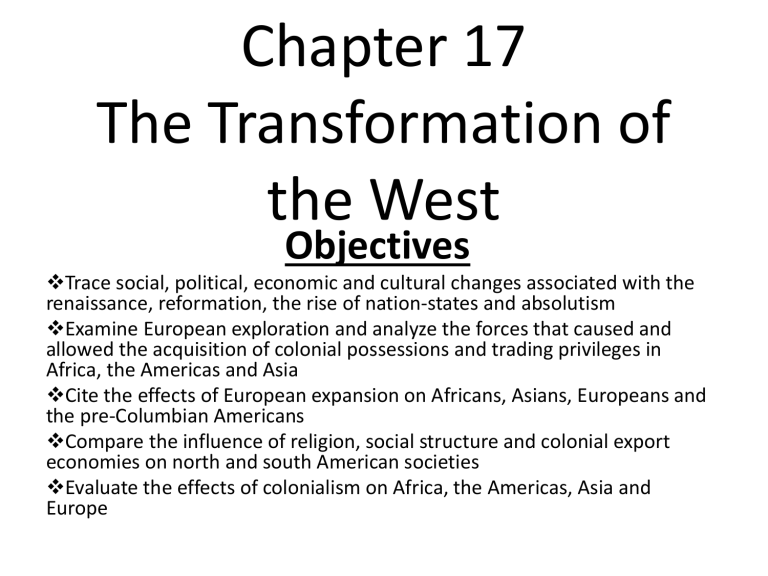
Chapter 17
The Transformation of the West
Objectives
Trace social, political, economic and cultural changes associated with the renaissance, reformation, the rise of nation-states and absolutism
Examine European exploration and analyze the forces that caused and allowed the acquisition of colonial possessions and trading privileges in
Africa, the Americas and Asia
Cite the effects of European expansion on Africans, Asians, Europeans and the pre-Columbian Americans
Compare the influence of religion, social structure and colonial export economies on north and south American societies
Evaluate the effects of colonialism on Africa, the Americas, Asia and
Europe
Summary
• Big changes in western Europe
• Core areas of Western civ. changed dramatically during this period (1450-1750)
• The west became unusually commercially active
• They also developed a strong manufacturing sector
• Governments increased their power
Summary
• In intellectual life, science became the centerpiece for the first time in the history of any society
• Ideas of family and personality also changed
• The changes resulted from overseas expansion and growing commercial dominance
• Internal changes such as the renaissance and enlightenment were marked by considerable internal conflict
• The focal point centered on the state, culture and commerce with support from tech.
Compare the ways which the renaissance, reformation and enlightenment had an effect on the political organization in Europe.
• All movements invoked change in popular mentality that affected political organization
Northern Renaissance
• The Northern renaissance attacked the authority of the church
• Allowed the state to control the church
• Increased interest in pomp (dignified or magnificent display) and ceremony
• Produced greater interest in military conquest and exploration
Reformation
• Concept of shared authority; thus the
Protestant regions were less likely to develop a absolute monarchies and tended to form parliamentary governments
• The success of the reformation allowed protestant rulers to seize control of possessions of the catholic church
Enlightenment
• Implied the ability of the state to intervene to benefit all citizens
• It contributed to the concept of progress and improvement
Politics
• Led to enlightened despotism (absolute power or authority)
• Despotism was particularly in eastern Europe, where
Prussia and Austria-Hungary sponsored state reforms
• It also coincided with the development of more centralized governments with more all-encompassing powers
Trace the economic changes between 1450 and
1750 and how those changes altered the social organization of western Europe
• Commercialization and inflation caused significant
• Individuals who invested gained at the expense of others who simply possessed property
• As a result the aristocracy was challenged
• At the lower end of the social scale the proletariat emerged
• The proletariat had income and wealth that was separate from possession of real property
• They were associated with the rise of domestic manufacturing and urbanization
• The process of these new changes created new social classes and social tension
• There was a wave of popular protest against poverty up to 1650
• Associated with the unrest was a hysteria over witchcraft
• This hysteria demonstrated a distrust of the poor as a potentially revolutionary group
